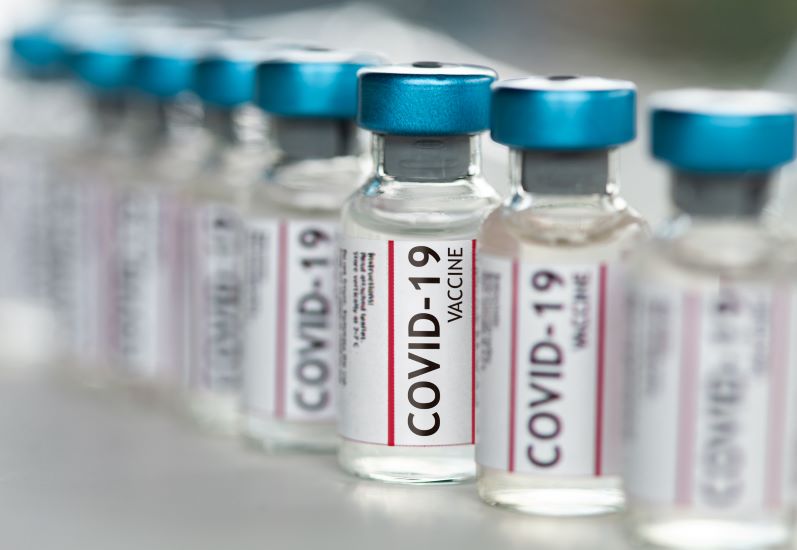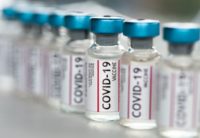It’s not yet common for companies to mandate COVID-19 vaccinations. However, with the Delta variant spreading rapidly in the United States and elsewhere, there’s a growing number of companies taking that route. Here are five of the related manufacturing and industrial organizations doing it and the specifics associated with each.
1. A raw plastics distributor ties vaccination to job offers
Lastique International Corp. is a Kentucky-based raw plastics distributor and recycler. The company implemented a zero-tolerance policy about the COVID-19 vaccine for all workers, which is addressed during interviews. If an applicant indicates they will not get vaccinated before being hired, the company does not consider extending a job offer, even if the individual is otherwise well-qualified.
2. An australian produce cannery acts as an early adopter
SBC is an Australian business that cans fruit and vegetables. It recently became the first in the country to require vaccination for all employees. Company chair Hussein Rifai told the media, “We believe that the only way that we can get out and protect our employees and our customers, and the communities in which we work, is to go to the vaccine.”
People must schedule their first vaccination within six weeks or risk getting barred from on-site work. However, SBC will provide paid vaccination leave, plus up to two days off, if workers get sick from side effects.
Data about all vaccines indicates only about 8.5 cases per 10,000 injections result in adverse reactions. However, some COVID-19 vaccine recipients experience fever, headache, fatigue, and muscle and joint soreness. They typically resolve within two to three days.
3. A biotech company requires vaccines for most employees
The U.S. Centers for Disease Control and Prevention (CDC) has been at the forefront of research throughout the pandemic. Researchers from the organization looked at the histopathology and cellular localization of the SARS-CoV-2 virus, including examining autopsied lung tissue from fatal cases. Additionally, the CDC has published information about COVID-19 vaccine development and provided employers with guidance about encouraging a workforce to get vaccinated.
The CDC follows the science when making its public health recommendations. Genentech — a San Francisco company that merged with Swiss biotech giant Roche — took a similar approach when mandating COVID-19 vaccines for all employees. The only exception is for those who have medical and religious exemptions.
A company statement said, “Our decision is grounded in science and driven by the imperative to protect our people and sustain our research, development and manufacturing of essential medicines for patients facing serious and life-threatening diseases, including COVID-19.” Company representatives also indicated that about 80% of its employees across the country have reported themselves as fully vaccinated.
4. A major meatpacker sets vaccine deadlines
Arkansas-based meatpacker Tyson Foods also became one of the latest companies to mandate COVID-19 vaccination. It will require all of its 120,000 U.S. workers to get their shots and has created role-specific deadlines for taking action.
All leaders must have their vaccines by Sept. 24, 2021, while office workers must abide by an Oct. 1 deadline. Remaining employees must have their shots by the first day of November this year. However, the company will make exceptions for unavoidable medical and religious circumstances that stand in the way of getting vaccines.
5. An automotive manufacturer chooses a travel-based requirement
Ford recently told its employees they must get vaccinated against COVID-19 if their roles require international travel. The automotive giant is not moving ahead with a broader mandate yet. However, it continues with an existing approach of strongly urging all workers to get vaccinated unless their doctors advise otherwise for health reasons.
A range of COVID-19 protection responses
Besides the vaccine mandates mentioned here, companies have taken an assortment of other responses due to COVID-19. Many reintroduced their mask mandates after case numbers worsened. Others set up on-site vaccine clinics or made travel arrangements to make it easier for people to get their shots.
Monetary incentives are common, too. For example, some employers give people vaccine bonuses once they provide proof of getting the shots. Another slightly less common option is to offer smaller cash rewards to people who convince their colleagues to become vaccinated.
The COVID-19 situation is still evolving, and that’s not likely to change anytime soon. Staying abreast of how some companies handle employee vaccination requirements can help other business representatives select the best response methods.


